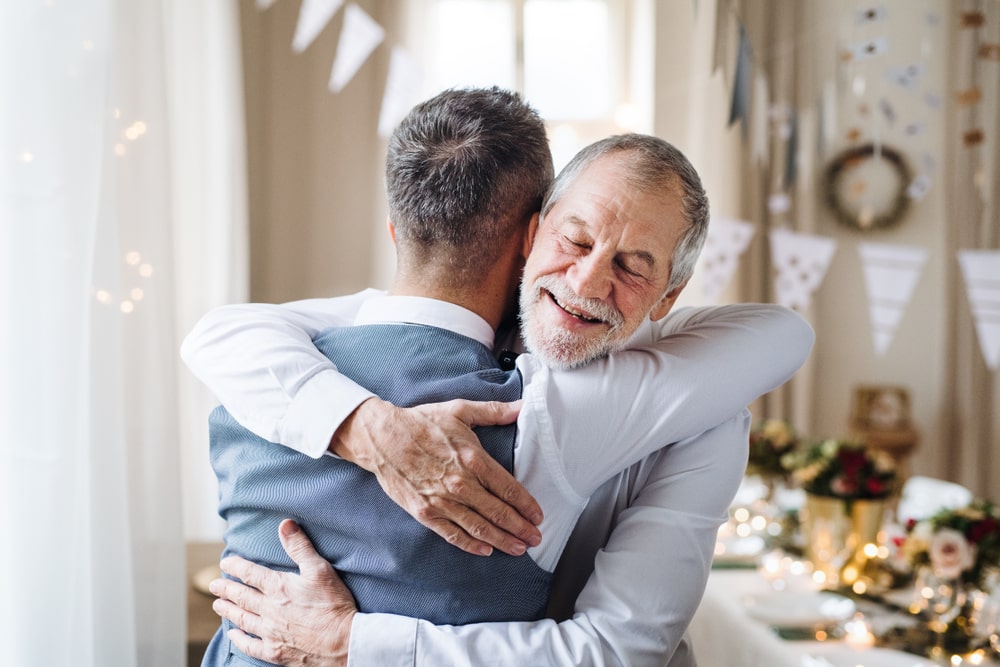Senior Relationship Services
Senior Relationship Mediation Service (SRMS)
Together, we’ll find a way to help seniors have safe, healthy family relationships



Overview
The Senior Relationship Mediation Service offers free:
- family mediation (family therapy)
- couples counselling
- individual counselling
- case management
- referrals to relevant services
- information.
Mediation helps elders and their families resolve issues, make decisions, and have important conversations while prioritising the rights, interests, and safety of the older person/people involved.
The Senior Relationship Mediation Service was previously named the Elder Mediation Support Service.
Who is this service for?
The Senior Relationship Mediation Service (SRMS) is for people ages 65 and older (or 50 and older for First Nations Peoples) and their family members, including partners and spouses.
The SRMS can also work with family members and others who are concerned about an older person.

Thank you so much for sensitive, professional, and helpful family mediation. One session of four family members (three in-person, one who joined via Zoom) was so effective that three generations of our family are now meeting regularly and we grandparents have regained access to our grandchildren.
Since then, we have enjoyed play-days and a sleep-over with grandchildren.
Throughout I was impressed by our mediator’s insightful understanding and wise suggestions. I have recommended to many others the quality care and professionalism of Relationships Australia Queensland.
Mary
,
Senior Relationship Mediation Service Client
How can I access the Senior Relationship Mediation Service?
You can contact the Senior Relationship Mediation Service at 1300 063 232 to learn more about mediation and schedule a session.
What do I need to know about the Senior Relationship Mediation Service?
The Senior Relationship Mediation Service prioritises the rights, interests, and safety of the older person or older people involved.
Mediation:
- is free
- is guided by an agreed-upon agenda
- can include individual meetings with participants
- is an informal process (outside of court proceedings)
- is voluntary and requires the consent of all participants
- prioritises the wellbeing and best interest of the older person
- is guided by a facilitator/mediator in a safe, supportive environment
- involves practitioner assessment to determine suitability for the process
- can take up to three hours, with the opportunity for more sessions if needed.
What is family mediation?
Mediation helps elderly people and their family members resolve problems, make decisions, and have important conversations.
Mediation involves family meetings guided by a professional mediator who helps the family reach agreements and build healthy, respectful relationship dynamics moving forward.
How does mediation help?
Mediation can help families to:
- Resolve conflict
- Agree on a way forward
- Share their hopes and concerns
- Understand each other’s perspectives
- Learn healthy ways to manage conflict.
What does a mediator do?
The mediator acts as a neutral third party to support you to safely discuss difficult issues while building healthy, respectful relationships moving forward. A mediator is a trained, qualified professional.
What happens in mediation?
Mediation involves a meeting with family members and a mediator in a safe, supportive environment. It’s voluntary and requires the consent of all participants.
The mediator guides the process with an agreed-upon agenda. A mediation meeting can take up to three hours, with the opportunity for additional sessions if needed. Participants may take breaks during sessions.
Participants can also meet individually with mediators to privately share their concerns. This can be especially helpful if you don’t feel comfortable or safe raising certain issues with your family members present.
What if someone doesn’t want to come to mediation?
Mediation is a completely voluntary service that requires the consent of all participants. Nobody can be forced or force someone to attend mediation.
I think I’m experiencing elder abuse – is mediation right for me?
We’re committed to supporting and protecting seniors who may be experiencing elder abuse.
Our mediators are trained in looking out for and dealing with elder abuse and will intervene appropriately if necessary.
We always act in the best interests of the rights, interests, and safety of the older person.
If you’re concerned about elder abuse, we can refer you to the free Elder Abuse Prevention and Support Service (EAPSS) to better assist you.
What are grandparent rights in Queensland? What can grandparents do under the Family Law Act?
Grandparent rights in Queensland are a common concern of our clients. Healthy, respectful grandparent-grandchild relationships can benefit the whole family.
Australian family law recognises the importance of children’s relationship with their grandparents.
We can provide information and referrals to help you understand what you can do as a grandparent in your current situation.
Get in Touch
To contact the Senior Relationship Mediation Service, please call 1300 063 232.
Hours:
- Monday – Friday: 8 am – 8 pm
- Saturdays: 9 am – 5 pm
- Closed Sundays and public holidays

